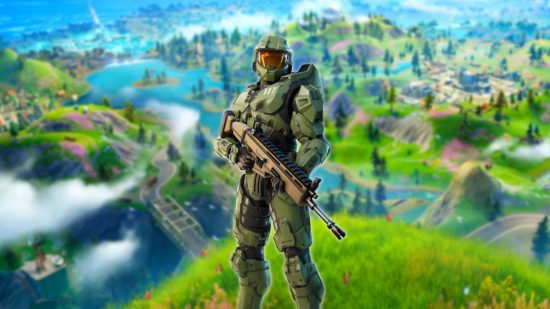Are Apple and Nintendo’s Delta blues a legal timebomb or just the new normal? | Pocket Gamer.biz

It’s been two weeks since the Delta emulator was lauched, subsequently hit the number one spot on Apple’s own App Store and – as far as Apple were concerned – hell finally froze over and they completely lost their grip on the quality and integrity of their App Store.
Delta’s success, both as a standalone app and the prime product on board the AltStore alternative app store, has all been ‘thanks’ to the introduction of the European Union’s Digital Markets Act, of course. Apple had warned that were they to permit such freedoms – enforced by the new EU law that kicked in on March 6th 2024 – that nefarious apps would appear and that they’d be powerless to stop them (following 15 years of rigid policing that has earned iOS as much of a reputation for user safety as for draconian, opaque rule enforcement).
And – of course – Apple was right. Following the swift removal of GBA4iOS, a Nintendo emulator that stole its open source code, the first true smash hit in the EU was AltStore, an alternative app store that featured – you guessed it – Delta, a Nintendo emulator, front and centre.
And following the realisation that such emulators would potentially lead to a glut of new app stores offering them (and an increasingly buttery grip on their App Store’s standing) Apple relaxed its rules on emulators in general, meaning that such fare didn’t even have to hide inside an alternative app store in order to get onto iOS devices.
The result was that Delta could stand alone as an app – even outside the EU – and the rest is history. Apple are freely giving access to an app that – following the reading of a few FAQs and a Google search or two – can be loaded up with illegally sourced and downloaded ROMs of Nintendo games, enabling users to play Nintendo’s valuable past classics for free.
It’s a situation that mere months ago would have seemed impossible. But thanks to the DMA and its fallout, is an ongoing reality and potentially a new normal.
Oh dear, DMA. You asked for freedom. And you got it. Is everyone happy now?
So what’s going on?
It’s hard to take Apple’s side on this. While they are following the instruction of the DMA to the letter it’s hard not to imagine an almost childish point-proving subquest being at play behind the scenes. Their nightmare has come true – just as they said it would – and to prove their point they’re allowing the distribution of an app whose clear purpose is to allow users to play Nintendo IP for free.
Oh dear, DMA. You asked for freedom. And you got it. Is everyone happy now?
While there are some that would argue that the situation now surrounding the DMA, Apple, AltStore and Delta is a successful conclusion – a free market now exists on iOS with Apple unable to police its channel in much the same way that no company is able to police the internet – it’s hard not to gasp at just how out of shape things have got.
An app that allows you to play Nintendo games for free at number one can’t be what anyone had in mind. Especially Nintendo.
Yes. Nintendo. What about Nintendo and how must they be feeling right now? They’ve been successful – in protracted legal cases that inexplicably take years to conclude – in shutting down the ‘grey area’ of emulators in the past (sending shockwaves of fear and surrender through anyone previously dabbling in the field). Surely they’re on the brink of pressing a Delta legal killswitch?
To find out more we reached out to FUTURA Digital, a company offering end-to-end legal and strategic assistance for digital companies. FUTURA specialise in picking apart the legal minefield of the digital world, providing safety and confidence for entrepreneurs seeking to provide new services and assurance to existing rights holders that their content and holdings are being used in the right way.
So what’s going on with Delta, Apple and Nintendo and what might happen next? FUTURA Digital’s co-founder Alexandra Kurdyumova, and associate Nazar Volkov take up the story.
At this point it seems like the ball is in Nintendo’s court as to what to do next. And it would appear that they have two options to solve the Delta puzzle on iOS.
- Firstly, the company may file a complaint to the AltStore which publishes Delta. This store will have to respond to such complaints and block the emulator.
- Secondly, the company may ask Apple to push AltStore to block Delta. If AltStore refuses, it may be blocked in Apple’s App Store, because providing Delta is helping to provide illegal copies of Nintendo games.
The second option seems unlikely – the complete block of AltStore may be unjustified in this case. Plus, Nintendo has to prove that Delta is on the shady side of legality, and that’s a whole other pickle.
When an emulator uses its own, home-baked BIOS it’s able to run games without stepping on any copyright toes.
Looking at the big picture
The release of emulators is a new important thing for Apple as a platform. The company’s App Store is moving away from strict moderation and becoming more open. It’s like Apple is moving from being the strict bouncer at the club to opening the doors a bit wider. But this is happening only in the EU and only under serious pressure. It all goes back to the new Digital Market Act (DMA) law. It requires Big Tech not to prohibit other businesses from placing its app stores on iOS (Article 5(3) of the DMA) and allowing iOS end users in the EU to download apps from sources other than their App Store.
Complying with the new law has another side of the coin for Apple – it inevitably loses some control over iOS so it won’t be able to moderate content from other app stores (because other companies control it) and kicking these stores from iOS will violate the DMA.
Don’t forget about legality
Emulators have always been in this grey area of “Is this legal?” Here’s what the law says, based on a famous court case about video game emulators (“Sony Computer Entertainment v. Connectix Corporation”):
Imagine this: emulators are like characters in a story, some playing by the rules, while others are a bit more rebellious. Yep, they can even be lawful or unlawful, depending on their operations. So, when an emulator uses its own, home-baked BIOS (even if they had to do some tricky reverse engineering), it’s like crafting its compatible environment inside the console, able to run games without stepping on any copyright toes.
But if an emulator decides to swipe a copy of the original console’s BIOS and some copyrighted software (including sneaky encryption keys), well, that’s a recipe for trouble. And let’s not forget, emulators shouldn’t come pre-loaded with game ROMs (copies of games to run in the emulator), as legally, Apple and the emulator developers aren’t on the hook for what players decide to download and load up themselves.
Note that the removal of GBA4iOS – a Game Boy emulator that broke cover prior to the release of AltStore and Delta and was removed by Apple from their App Store – was not removed due to issues concerning the legality of its purpose. It was removed because it was a copy of an open-source emulator, so it was a violation of the rights of the emulator’s creator, not of the original console maker.
It is impossible to predict what Apple will decide. The company could wait for a court decision or respond to the claim of Nintendo itself.
Emulators are tricky…
So, we need to remember that the legality of emulators is a grey area, especially when their utility relies on the obtaining of game ROMs. It is impossible to predict what Apple will decide in this case. The company could wait for a court decision or respond to the claim of Nintendo itself.
And then there’s Nintendo, the sheriff in town when it comes to their games. Recently, Nintendo won a battle with Tropic Haze (author of the Nintendo Switch emulator “Yuzu”). Tropic Haze will pay $2.4 million and shut the project down for violating Nintendo’s copyright. While Nintendo tried to stop anybody from playing their games on other platforms (with technical measures and conditions in their user documents), Tropic Haze ignored those measures (with encryption keys) and gained a lot of financial support via Patreon and other services.
In another tussle back in 2023, Nintendo teamed up with Valve to tackle developers of the Dolphin emulator, also using encryption keys. After the complaint by Nintendo, Valve prevented the release and pointed out that U. S. law prohibits bypassing of technological measures applied by the copyright holder (section 1201 of DMCA).
So there you have it. Nintendo finds itself at the forefront of legal battles surrounding emulators, with options to either pursue complaints against platforms like AltStore or collaborate with Apple to enforce restrictions.
And as to whether Nintendo will eventually bite (and whether that bite will have any teeth) OR if the freedom and existence of Delta and similar services becomes the new day to day, unchallenged and unchallengeable status quo… Only time will tell.




